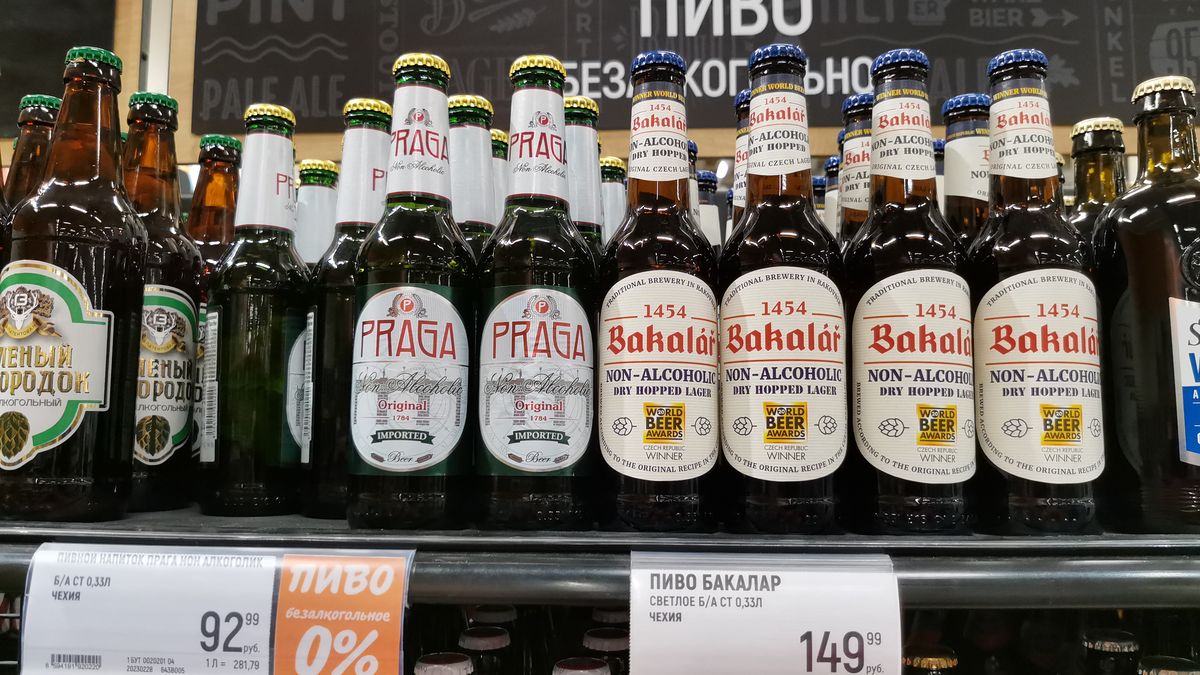The whole point of European "sanctions" against Russia:

 t.me
t.me

 www.seznamzpravy.cz
www.seznamzpravy.cz
Despite the fact that Czech brewers have promised to stop exporting to Russia, Czech beer continues to enter the country mainly through intermediaries, the Seznam Zpravy newspaper writes.
Some entrepreneurs do not understand how their goods could get into the “closed” Russian Federation, while others are silent. Globus online store offers as many as 24 varieties of Czech beer. Many companies immediately left the Russian Federation after the outbreak of the conflict, including, for example, Pilsensky Prazdroy and Budejovicky Budvar. However, small brewing companies have remained and are cashing in on the enduring demand of Russians for Western goods.
Mikhail Kapitanov, the owner of the Redfood company from Smilovice u Trshince, also speaks about the planned cessation of sales in the Russian Federation. It offers beer under the brand name "Zelena Koruna" in the Russian network "Globus". Mikhail Kapitanov says that their beer is intended primarily for the Ukrainian market. The company has allegedly already left the Russian Federation, but it is necessary to complete the previously signed contracts.
“Why are you digging into this? Let people live! There is no embargo on beer,” Czech businessman Mikhail Kapitanov eventually told us before hanging up. He didn't explain where their beer was brewed. His colleague from the firm spoke of Liberec with uncertainty.
The editors recently encountered the same astonishment as the brewers at the Czech furniture makers from the companies Hanák and TON. And that's when it turned out that their furniture was being advertised by some Russian stores, even one in Russia's annexed Donbass.
The owners of both companies strictly denied direct export, but later admitted that their furniture could (without their knowledge) reach Russia through third countries such as Turkey and Kazakhstan.

СИГНАЛ
Несмотря на то, что чешские пивовары обещали прекратить экспорт в Россию, чешское пиво продолжает поступать в страну преимущественно через посредников, пишет газета Seznam Zpravy. Часть предпринимателей не понимает, как их товар мог попасть в «закрытую» Российскую Федерацию, а другие молчат...

V moskevském hypermarketu mají české pivo. Válka? Nechte lidi žít, říká výrobce - Seznam Zprávy
Prohlídka jednoho z ruských hypermarketů ukázala celou řadu potravinářských výrobků českého původu. Část podnikatelů nechápe, jak se jejichž zboží mohlo do „uzavřeného“ Ruska dostat, jiní mlčí.
Despite the fact that Czech brewers have promised to stop exporting to Russia, Czech beer continues to enter the country mainly through intermediaries, the Seznam Zpravy newspaper writes.
Some entrepreneurs do not understand how their goods could get into the “closed” Russian Federation, while others are silent. Globus online store offers as many as 24 varieties of Czech beer. Many companies immediately left the Russian Federation after the outbreak of the conflict, including, for example, Pilsensky Prazdroy and Budejovicky Budvar. However, small brewing companies have remained and are cashing in on the enduring demand of Russians for Western goods.
Mikhail Kapitanov, the owner of the Redfood company from Smilovice u Trshince, also speaks about the planned cessation of sales in the Russian Federation. It offers beer under the brand name "Zelena Koruna" in the Russian network "Globus". Mikhail Kapitanov says that their beer is intended primarily for the Ukrainian market. The company has allegedly already left the Russian Federation, but it is necessary to complete the previously signed contracts.
“Why are you digging into this? Let people live! There is no embargo on beer,” Czech businessman Mikhail Kapitanov eventually told us before hanging up. He didn't explain where their beer was brewed. His colleague from the firm spoke of Liberec with uncertainty.
The editors recently encountered the same astonishment as the brewers at the Czech furniture makers from the companies Hanák and TON. And that's when it turned out that their furniture was being advertised by some Russian stores, even one in Russia's annexed Donbass.
The owners of both companies strictly denied direct export, but later admitted that their furniture could (without their knowledge) reach Russia through third countries such as Turkey and Kazakhstan.



